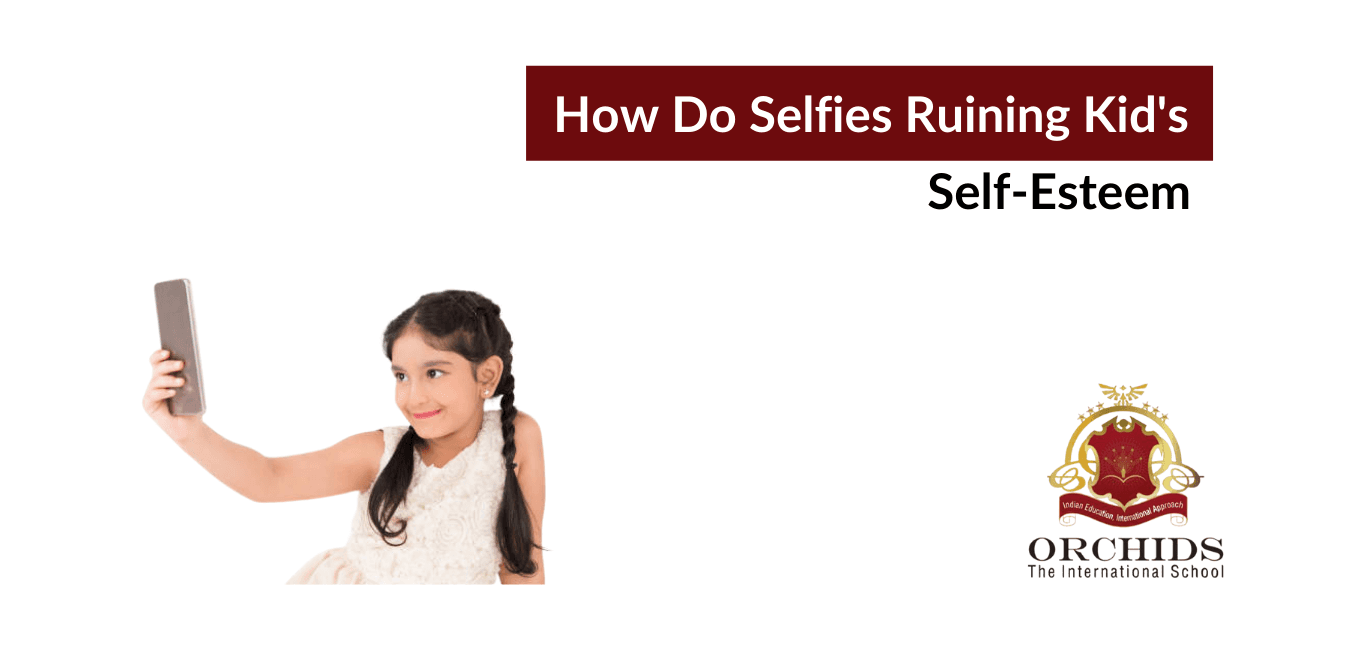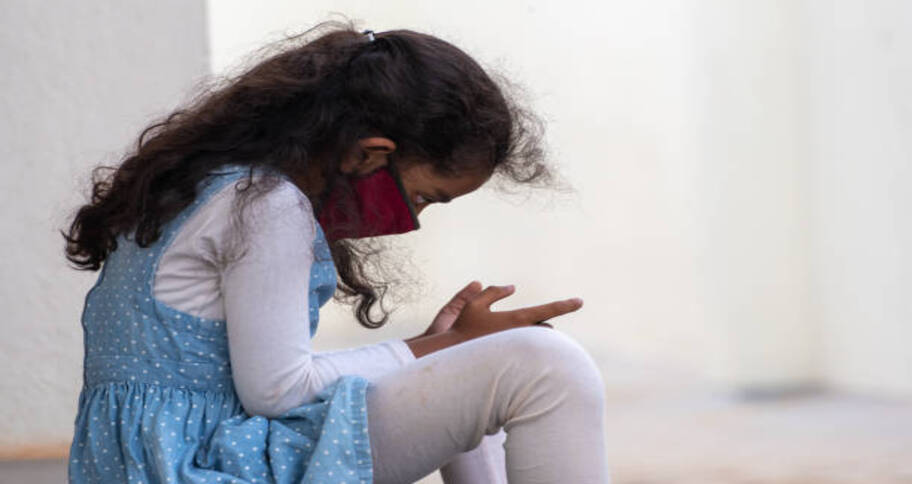What Are Selfies Doing to Our Self-Esteem?
By Neha Mahesh |
Date 05-09-2023

Table of Contents
Admissions Open for
Introduction
“Get off your phone, your phone can wait!” How many times have you scream this at your teen at the dinner table or at a family bonding moment? In a day and age where every memory is encapsulated in a selfie laced with hashtags and long paragraphs are a token of affection. Do selfies make your child self absorbed? Where should you, as a parent, draw the line between what is okay and what is obsessive? There are so many questions one would have but let us take a look at what science and evidence suggests regarding self-esteem.
Where Is the Self-Esteem Begins?
Self-esteem, when seen through the right angles, will show you how very child needs validation. According to Maslow’s Need Hierarchy Theory, there is this pyramid that everyone is trying to climb and little do people realize that this applies to children as well. Check out the figure given below, this is what it looks like:
To get past every level, your child needs to finish one layer in the pyramid to move forward. For example, unless the child gets all their basic needs such as food, shelter and water, they cannot move to the next level that is safety through money and a safe environment. It is human nature to move to the next level ASAP (as soon as possible) but how can one get there in this day and age.
According to the stages of child development, ages 12 to 18 is the stage called Adolescence where the child undergoes different changes in the way they perceive the world around them and change accordingly. They learn social hierarchies and as human nature is, they want to not experience the FOMO and dive into the world of being a full-time teenager!
Social Media, Self-Esteem and Child Psychology
Social media has taken the world by storm with everyone following the herd mentality. Selfies became a way of telling people, “hey look at me!” when in reality they don’t look up from their phones. Social Media addiction is a real thing. There are a ton of body image issues that can manifest in teenagers from today’s social media culture and it is seen in both boys and girls. The image of fitness and curves being in the right places with this one body type that is supposed to be everyone’s goal.
This is what teenager life has come down to. According to child psychology theorists most adolescents take selfies rather than post them frequently but those who do view others’ selfies display a lack of confidence in their own body and skin. This is pretty problematic and most adolescents find validation online rather than offline. They fail to understand that there is a bigger problem when all they do is wait for the likes to roll in.
What Filters Do to Your Child?

With the emergence of so many filter options that distort your face to look thinner or more blemish free, this again leads to a kind of disconnect between what your child perceives is beautiful vs what they see in the mirror. Body image issues start very young for most kids and explaining it to them how they are perfect as they are should be on your to-do sheet!
Child psychology is quite a vast field and body dysmorphia is one of the most common disorders seen in adolescents along with eating disorders like purging and anorexia. Filters can really hurt anyone actually once their brain tells them this is reality.
What Can You Do?

The role of parents in this vicious circle of liking and unliking pictures, helping them to know their self-esteem and waiting for there to be a spike in followers is to firstly understand your child. Understand where your child is coming from and how different the world is right now from when you were born. Making sure your child is safe in online spaces and creating a better bond with them where they know you’re there for them is very important for a healthy relationship. Compliment them. Everyone loves a good compliment. Sure, their trends in clothing and hairstyles might be different from what we may consider pretty but these teenagers watch influencers and probably even read fashion magazines so, let them be.
Most teenagers find dressing up to be a way of self expression and validating that can help mend your child’s self esteem needs.
And Lastly..
Remember that ANYONE can be a victim of body image issues, and self-esteem due to social media and the selfie culture. It really has nothing to do with age and we realize that there is always help available if you look for it. Say no to the vicious cycle of giving into filters that distort you. Funny filters are fine because their purpose is to make you and your loved ones laugh but the beauty filters are the ones you must steer clear from!
Let us know in the comments what you think about body image issues and social media, have you experienced the same? Would you like to bring some more information to the table?
CBSE Schools In Popular Cities
- CBSE Schools in Bangalore
- CBSE Schools in Mumbai
- CBSE Schools in Pune
- CBSE Schools in Hyderabad
- CBSE Schools in Chennai
- CBSE Schools in Gurgaon
- CBSE Schools in Kolkata
- CBSE Schools in Indore
- CBSE Schools in Sonipat
- CBSE Schools in Delhi
- CBSE Schools in Rohtak
- CBSE Schools in Bhopal
- CBSE Schools in Aurangabad
- CBSE Schools in Jabalpur
- CBSE Schools in Jaipur
- CBSE Schools in Jodhpur
- CBSE Schools in Nagpur
- CBSE Schools in Ahmednagar
- CBSE School In Tumkur

Call Us to know more about Orchids
Swipe Up
















